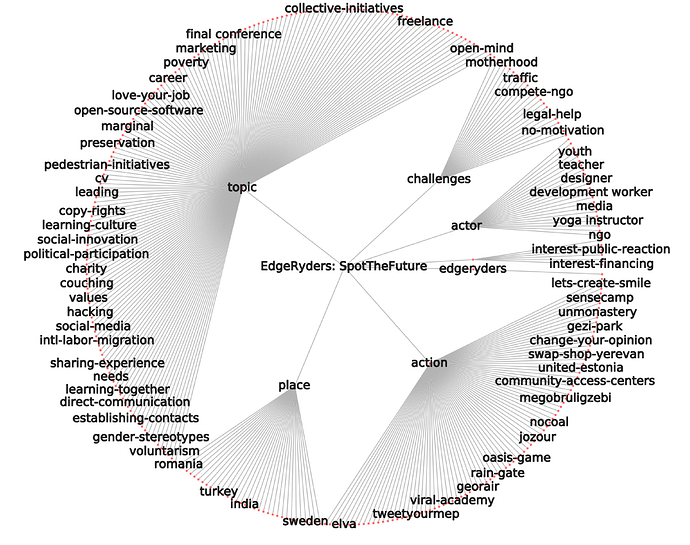@Nadia, Here is a draft abstract, tell me what you think, and feel free to edit/comment/whatever. 
P { margin-bottom: 0.21cm; }
In this paper we show how a creation of on-line community of grass-root activists from Armenia, Egypt and Georgia led to new horizontal cooperation on national and international level. In addition to that, a combined qualitative and quantitative analysis of the on-line interaction between these grass-root activists enabled us to provide concrete recommendations for the future policies.
“Spot The Future” is a project aimed at locating and connecting local grass-root activists and social entrepreneurs in Armenia, Egypt and Georgia. This is done by the means of Internet platform where users are encouraged to share their experiences, share their projects and visions, find their peers and establish new connections with a focus on future collaboration with the representatives of other social innovators in their own and other countries, as well as with the UNDP representatives. The uniqueness of the Spot The Future approach is embedded in inclusiveness, horizontal networking, orientation towards real-action solutions instead of pure networking. All the participants of the on-line and off-line discussions are perceived as experts, and the project team was taking a role of facilitators, encouraging involvement in on-line and off-line discussions, offering assistance, but leaving the decision-making role for the participants. This approach led to horizontal cooperation between grass-root activists on national and international level and provided the UNDP with an extensive map of social activism in Armenia, Egypt and Georgia.
In addition to that, a research team consisting of social network specialists and an ethnographer conducted an extensive qualitative and quantitative analysis of the on-line interaction in the Spot The Future platform. Social network analysis and ethnographic qualitative data analysis of the posts and comments of the Spot The Future platform, added another level of understanding of the ground environment of the social actors in Armenia, Egypt and Georgia.
The quantitative and qualitative on-line data analysis, supplemented by the analysis of data obtained through off-line focus-group discussion revealed that social activists in these three countries are not satisfied with prevailing top-bottom approach to social challenges, are disappointed by the quality of vertical cooperation with governmental institutions, international organizations and other main top-bottom approach players, are challenged by the traditional market economy. They showed preferences to horizontal cooperation, innovative approaches, localized initiatives, collective action and informal economy. These results allowed us to formulate future policy recommendations for the UNDP and other institutional development players in Armenia, Georgia and Egypt.

